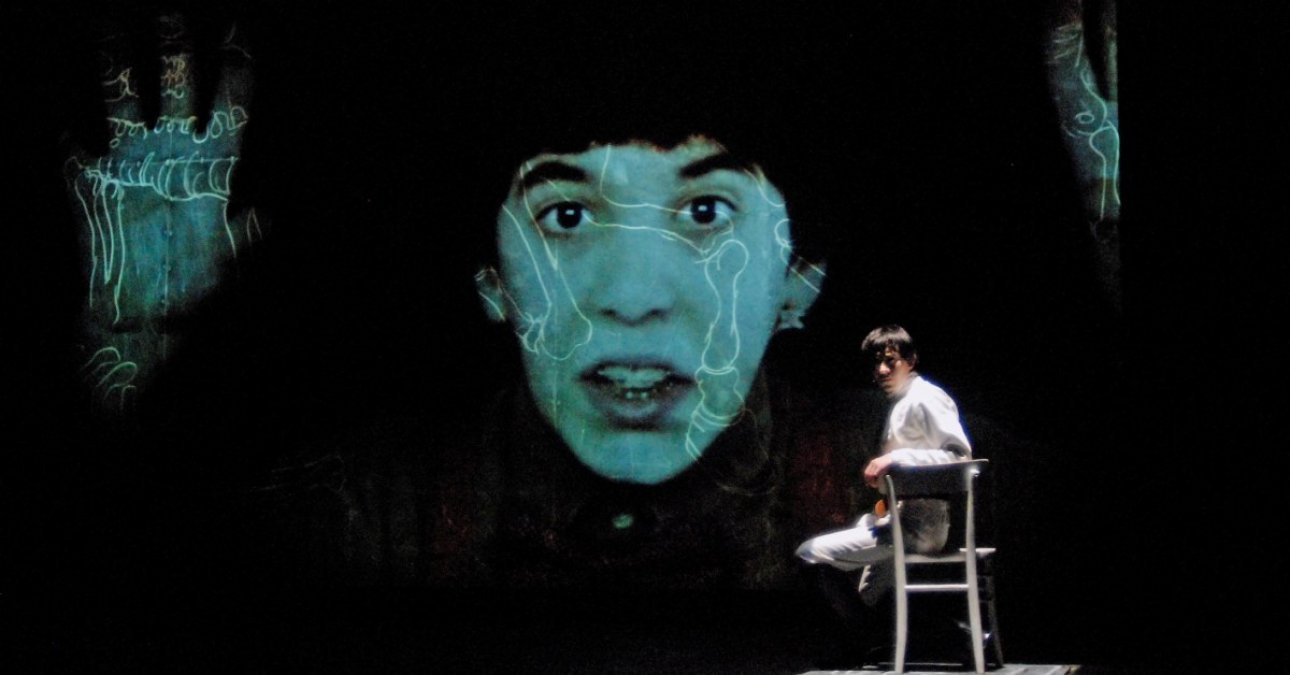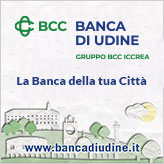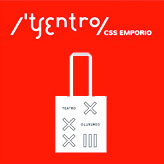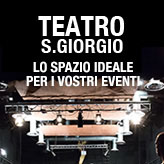The Hunt
Luigi Lo Cascio e il CSS Teatro stabile di innovazione del FVG si ritrovano nella condivisione di un nuovo percorso di produzione teatrale, La caccia, liberamente ispirato a Baccanti di Euripide.
CREDITSfreely inspired by The Bacchae by Euripides
created by Nicola Console, Luigi Lo Cascio, Alice Mangano, Desideria Rayner
scenery and design by Nicola Console
lighting design by Stefano Mazzanti
sound concept Mauro Forte
director's assistant Marco Serafino Cecchi
director of photography Marianne Boutrit
video technician and editing assistant Franco Duranti
winner of Biglietto d’oro per il teatro 2008
The artistic joint venture between CSS Teatro stabile di innovazione del Friuli Venezia Giulia (Italy) and leading Italian actor Luigi Lo Cascio continues with another exciting new theatrical adventure on the stage, this time the production of La caccia.
The play is inspired by Euripides’ Bacchae and offers an inventive multimedia reinterpretation of the Greek classic. While the plot and the main themes of the work (the struggle between a ruler and a god and the conflicts between reason and instinct, duty and pleasure, and a society regulated by rules respected to allow civil co-existence and a community that is prey to passion) remain the same, the play re-examines them and takes a fresh look at their spirit and multiple meanings with a script employing a dynamic variety of expressive languages.
Since his return to the stage in 2005, following a long stream of films (including One Hundred Steps and The Best of Youth by Marco Tullio Giordana, Good Morning, Night by Marco Bellocchio, The Best Day of My Life and The Beast in the Heart by Cristina Comencini, and the recent Miracle at St. Anna by Spike Lee, Luigi Lo Cascio has embarked on a quest with a group of visual artists with whom he has chosen to share his new theatre shows.
La caccia combines traditional drama enacted on the stage by Luigi Lo Cascio with an interwoven fabric of contributions featuring images from cartoon films, electronic sound and video art. The result of this orchestration of different languages is a project devised and developed by various people, with Luigi Lo Cascio as playwright, actor and director, Nicola Console as set designer and artist, Alice Mangano for video art design, Desideria Rayner for sound and video editing and Stefano Mazzanti for lighting design.
Although we see only Lo Cascio on the stage, there is also another protagonist who appears exclusively in video, Pietro Rosa, a 13-year-old boy in a surprise role that will be revealed during the show.
“From a narrative point of view," Lo Cascio explains, “La caccia focuses on the experience of King Pentheus of Thebes, the authoritarian ruler who initially attempts to use his power to banish a god, Dionysus, from the city. However, the elusive, ambiguous presence of the god's shadow will reveal the full extent of his deadly cruelty in a relentless manhunt. The god will cloud Pentheus’ mental faculties, making him docile and defenceless before leading him to his defeat. The events on the stage are a direct projection of the confused turmoil that has seized the tyrant’s mind. The other characters of The Bacchae – Cadmus, the founder of Thebes; the priest Tiresias; and the women of Thebes who had fled to Mount Cithaeron to join the god's followers – appear in the form of a hallucination, like an enemy wreaking havoc from within. By conveying the anguish rendered invisible by the messengers’ narration and exposing Pentheus’ inner experience, we can witness the reversal that transforms the king from hunter to hunted, from the keeper of civic order to a mauled body torn to meaningless pieces.”
La caccia is an attempted variation on one of the many motifs that compose Euripides’ Bacchae. The playwright chose this theme not only because the activity and the metaphor of the hunt are prominent features of the text alluding to the mechanism of the confrontation between persecutor and prey and the tragic reversal in the power relations between the two figures (one of Dionysus’ countless names is Zagreus, in the sense of Bacchus the Hunter), but also because the concept of the hunt immediately conjures up the practices that are deployed to circumscribe the enigma of this tragedy. Indeed, the hunt represents the desire to surround, run to ground and capture the quintessentially elusive figure: Dionysus, with his ambiguous traits of joyfulness and annihilation. The difficulties and contradictions encountered in the attempt to strike home once and for all will not be concealed. Dionysus, who will not let himself be caught, does not actually appear on the stage. We will deduce the action from the effects that it produces on Pentheus in particular, who initially opposed the god, only to be subsequently ensnared by the same elusive substance that had so disturbed him.
Dionysus will also be hunted in another sense by a character who will appear several times during the show: a scholar of the Hellenic world. His method of capturing the essence of the text is based on promises of clarification derived from critical stratagems and the application of expedients associated with the science of knowledge to mythological material.
However, that is not to say that matter will be examined exclusively through the albeit highly enthralling web of concepts that crowd the pages of the commentaries.
Dionysus does not appear, showing himself to neither his followers nor his adversaries. Even his store of emblems and attributes risks surviving only in the degraded register of the fetish, commodity or seductive image that creates an illusion of complete gratification merely for a few fleeting moments. And so the classical Greek choruses are replaced by small-time chorales. The voice of the community that comes together to solve a problem, enforce a rule or propose a shared ethic, is replaced by an impersonal and lethal warning that is passed on and breaks down the narration to impose an object of consumption.
Pentheus is tormented by an unremitting desire to see the women dancing on Mount Cithaeron. The subjective viewpoint allows us to follow the stages in the blurring and distortion of his sight ensuing from the yearning that drives him to watch the Bacchantes at close quarters. The projected images thus highlight the reality of those visual dysfunctions (vertigo, hallucinations, doubling, blurring) that we might otherwise consider mere suggestions without a purpose. Finally, Pentheus’ perceptive faculties will be completely compromised at the moment in which the roles are reversed, from the hunter watching to the prey being watched.
Luigi Lo Cascio
Images
Texts
locandina La caccia - grafica Gianfranco Casula [506 Kb]programma di sala La caccia - grafica Gianfranco Casula [515 Kb]programma di sala La caccia - testi [55 Kb]Press reviews
Rodolfo di Giammarco, Luigi Lo Cascio - La Repubblica, 24 febbraio 2007 [404 Kb]Rodolfo di Giammarco, Per La caccia sulla pista di Euripide Lo Cascio si mette a fare il tiranno - Il venerdì di Repubblica, 10 ottobre 2007 [399 Kb]Ilaria Pellanda, Le 'Baccanti' di Euripide secondo Luigi Lo Cascio - VeneziaMusica e dintorni, gennaio_febbraio 2008 [1203 Kb]Luciana Fusi, Il tragico scontro tra ragione e follia - Qui Touring, febbraio 2008 [471 Kb]Giulia Calligaro, I miei secondi cento passi - Io Donna del Corriere della Sera, 23 febbraio 2008 [1135 Kb]Roberto Canziani, Nel cuore di tenebra delle Baccanti - Il Piccolo, 1 marzo 2008 [417 Kb]Antonio Audino, Caccia al tiranno - Il Sole 24 Ore, 2 marzo 2008 [58 Kb]Claudia Provvedini, Addio Dioniso, la fantasia è finita in spot - Corriere della Sera, 2 marzo 2008 [97 Kb]Gianfranco Capitta, La sfida di Penteo, scontro fatale con l'eros - Il Manifesto, 2 marzo 2008 [115 Kb]Domenico Rigotti, L'Euripide multimediale di Lo Cascio dà una bella scossa al teatro moderno - Avvenire, 8 marzo 2008 [83 Kb]Magda Poli, Ironico e kafkiano l'Euripide di Lo Cascio - Corriere della Sera, 8 marzo 2008 [338 Kb]Renato Palazzi, La caccia - DelTeatro.it, 11 marzo 2008 [26 Kb]Maria Grazia Gregori, Lo Cascio «cacciatore» di teatro «su misura» - l'Unità, 16 marzo 2008.pdf [84 Kb]Raffaella Grassi, Lo Cascio: «Vi porto nell'oscurità del mito» - Il Secolo XIX, 19 marzo 2008 [143 Kb]Marì Alberione, I cento atti - Film Tv, 23 marzo 2008 [901 Kb]Massimo Marino, Dentro la tragedia - Corriere di Bologna, 25 marzo 2008 [519 Kb]Paolo Petroni, Lo Cascio sfida il dissoluto Dioniso - Corriere della Sera Roma, 18 febbraio 2009 [186 Kb]Tour
première28 - 29 February, 1st March 2008, 21 p.m.
Teatro Contatto 07/08
Udine, Teatro Palamostre
2008 tour
4-5 March 2008, 21 p.m.
Imola (BO), Teatro Osservanza
6-8 March and 11-15 March 2008, 20.45 p.m.
9 e 16 marzo 2008, 16 p.m.
Milano, Teatro Leonardo da Vinci
17 March 2008, 21 p.m.
Vigevano (PV), Civico Teatro Antonio Cagnoni
18 March 2008, 21 p.m.
Scandiano (RE), Teatro Boiardo
19-20 March 2008, 21 p.m.
Genova, Teatro Gustavo Modena
25-26 March 2008, 21 p.m.
Casalecchio di Reno (BO), Teatro Alfredo Testoni
27-30 March 2008
Cesena (FC), Teatro Bonci
2 April 2008
Correggio (RE), Teatro Asioli
4-6 April 2008
Cosenza, Teatro Alfonso Rendano
2009 tour
15-16 January 2009, 8.45 p.m.
Teatro Comunale, Monfalcone (GO)
17-18 January 2009, 9.00 p.m.
Teatro Palamostre, Udine
26 January – 8 February 2009
Teatro Diana, Naples
10–14 February and 17-21 February 2009, 8.45 p.m.
15 and 22 February 2009, 4.45 p.m.
Teatro Valle, Rome
24 February – 1 March 2009
Teatro Ambasciatori, Catania
2010 tour
7 February 2010
Pontedera (PI), Teatro Era
11-12 February 2010
Carrara, Teatro degli Animosi
15-16 February 2010
Aosta, Teatro Giacosa
19-20 February 2010
Bra (CN), Civico Teatro Politeama Boglione
22-23 February 2010, 9.00 p.m.
Casale Monferrato (AL), Teatro Municipale
26-28 February 2010
Bologna, Teatro Duse
2-3 March 2010
Crema (CR), Teatro San Domenico
5-6 March 2010
La Spezia, Teatro Civico
9-10, 12-13 and 15-20 March 2010, 8.45 p.m.
14 and 21 March 2010, 4.00 p.m.
Milano, Teatro Puccini, sala Shakespeare
24-25 March 2010, 9.00 p.m.
Pavia, Teatro Fraschini
28 March 2010, 9.00 p.m.
Grosseto, Teatro Moderno




















